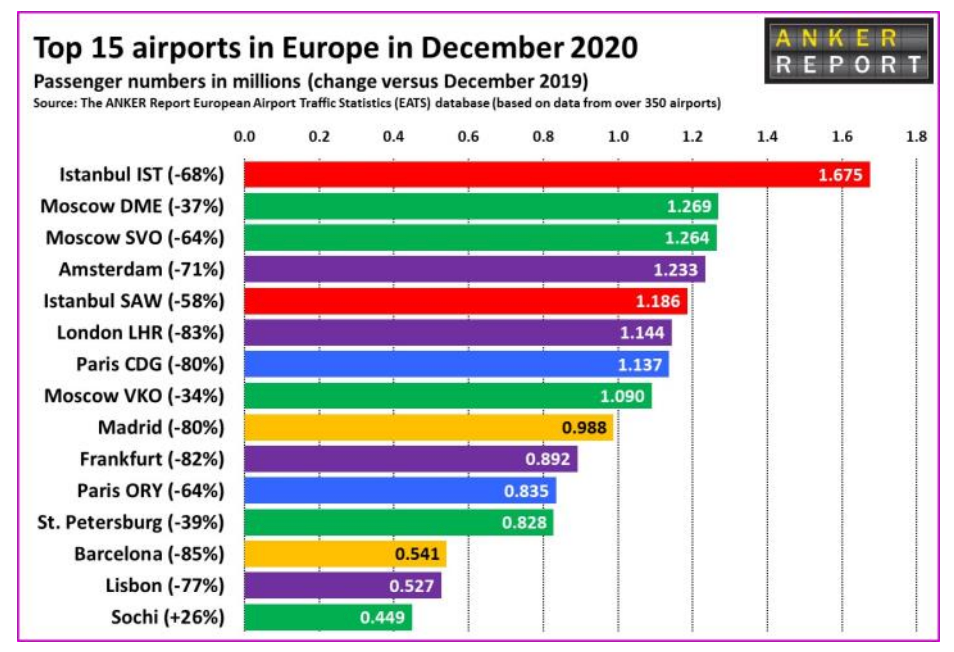The new giants of European aviation: Russia and Turkey
Plane Talk: The continental order has been overturned – possibly permanently

Your support helps us to tell the story
From reproductive rights to climate change to Big Tech, The Independent is on the ground when the story is developing. Whether it's investigating the financials of Elon Musk's pro-Trump PAC or producing our latest documentary, 'The A Word', which shines a light on the American women fighting for reproductive rights, we know how important it is to parse out the facts from the messaging.
At such a critical moment in US history, we need reporters on the ground. Your donation allows us to keep sending journalists to speak to both sides of the story.
The Independent is trusted by Americans across the entire political spectrum. And unlike many other quality news outlets, we choose not to lock Americans out of our reporting and analysis with paywalls. We believe quality journalism should be available to everyone, paid for by those who can afford it.
Your support makes all the difference.For many decades, the European order of aviation has had three certainties: the UK boasts the highest number of flights; London is the best-connected city; and Heathrow is the busiest airport for passenger numbers.
The coronavirus pandemic, and the response to it, has wrecked that reliable trinity. And with ministers apparently uninterested in the fate of what was previously the world’s best aviation market – in terms of choice, competition, value and safety – it may mark a permanent change.
I base that assertion on some remarkable research carried out by Ralph Anker, editor of The Anker Report – an aviation newsletter – and former network planner at easyJet and Go.
He analysed a database of passenger statistics for well over 400 airports from April to December 2020, and compared it with the same spell in 2019.
Mr Anker’s conclusion: there are two mighty European aviation powers, and neither is the UK. Both are countries that straddle two continents, extending deep into Asia but with their busiest hubs within Europe.
Turkey is the clear leader, ahead of Russia – though data from beyond Moscow and St Petersburg is unavailable.
Spain, Italy and France fill the next three places. In sixth: the UK, though it is almost a tie with Germany.
Drilling down to city level, the December data show Istanbul and Moscow are almost embarrassingly far ahead of London. The Russian capital has a clear lead, with no other city apart from Turkey’s largest coming close.
Zooming in to individual airports provides an even more stark revelation of how devastating coronavirus has been to western European aviation.
Even though Istanbul’s shiny new airport has lost 68 per cent of its traffic, that is still a far better performance than most competitors. IST is top of the new European league.
The Muscovite duo of Domodedovo and Sheremetyevo are effectively tied for second place. The highest of the former “big four” hub airports in western Europe is Amsterdam, in fourth.
Then Istanbul pops up again, in the shape of Sabiha Gokcen (or SAW), across the Bosphorus on the Asian side of the water.
London Heathrow takes sixth place, marginally ahead of Paris CDG, and Moscow pops up for a third time in the top 10 with Vnukovo in eighth place. Madrid, which Iberia’s parent IAG would like to feature as a European giant, is next.
Frankfurt just scrapes in to complete the top 10.
The second airport serving the French capital, Orly, makes 11th, with the airport serving Russia’s second city, St Petersburg, just behind it.
Barcelona and Lisbon fight it out for the lucky 13th spot. Completing the top XV, the unfamiliar sight of Sochi: Russia’s Black Sea gem.

Northwest Europe has experienced a calamity in aviation business terms. The British government seems determined to ensure that continues for months to come.
Boris Johnson’s celebrated roadmap out of lockdown includes intricate details of what a spa may offer (neither a saunas nor a steam room) but exactly no information about when and how meaningful domestic aviation may begin. And a minimum of 12 weeks will have elapsed between the prime minister’s announcement and when any of us can travel for fun.
The opportunities that travellers have lost are shocking – but far worse is the damage caused to the professionals who put UK aviation at the top of the European tree and kept it there.
Transport secretaries, in my experience, generally have brief and forgettable careers. Not Grant Shapps. He will go down in aviation history as the man who presided over the wholesale destruction of an industry: not merely setting up a no-fly policy lasting for months, but then urging prospective summer travellers not to book. But perhaps they will look more kindly upon him in Istanbul and Moscow.



Join our commenting forum
Join thought-provoking conversations, follow other Independent readers and see their replies
Comments